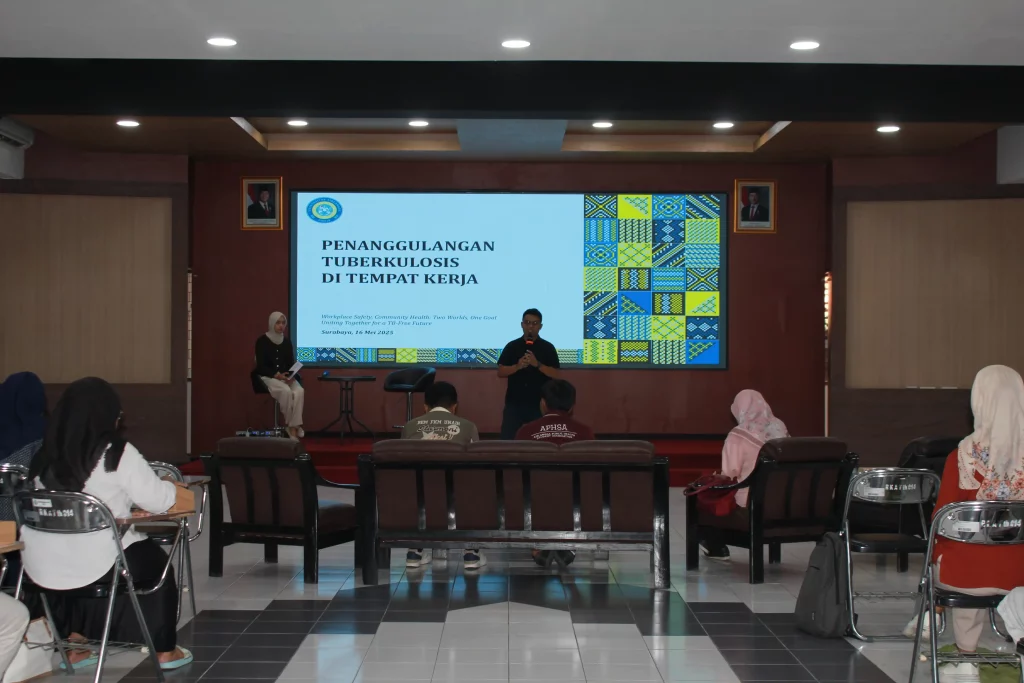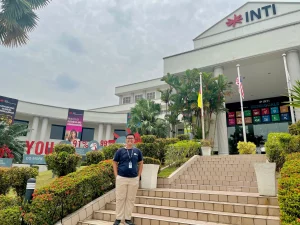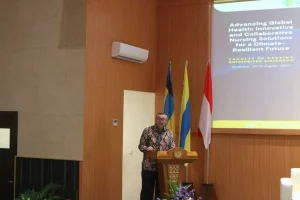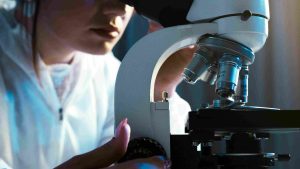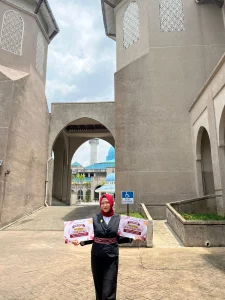UNAIR NEWS – Effective tuberculosis (TB) prevention requires cross-sector collaboration, including participation from the industrial sector. This message was delivered by Finanta Gaffar Rifa’i, S.KM, an alumnus of Universitas Airlangga who now serves as Health, Safety, Security, and Environment (HSSE) Manager at PT Pelindo Energi Logistik Surabaya.
Rifa’i was a speaker at the seminar Workplace Safety, Community Health: Two Worlds, One Goal, organized by APHSA BEM FKM UNAIR. The public event took place on Sunday, May 18, 2025, at Soemarto Hall, Faculty of Public Health, Universitas Airlangga.
He emphasized that TB prevention in the workplace is crucial not only for national TB elimination efforts—targeted for 2035—but also for ensuring employee health and safety. This initiative aligns with the Ministry of Manpower Regulation No. 13 of 2022, which mandates such efforts by employers. He warned that failure to address TB can be detrimental to business operations.
“Absences caused by TB illness can significantly impact employee productivity and overall company performance,” he said.
The field of public health encompasses various areas of concentration, including Occupational Health and Safety (OHS), Health Administration and Policy, Health Promotion, and Behavioral Sciences. Rifa’i stressed that regardless of specialization, public health students acquire versatile knowledge applicable across professional environments, including TB prevention at work.
“All areas of study become relevant in the workplace. It wasn’t until I started working that I fully appreciated how public health knowledge can be applied in real-world settings,” he noted.
Role of public health graduates in the workplace
According to Rifa’i, public health graduates employed in industrial settings should be equipped to design and implement workplace health programs. He said such initiatives are a tangible demonstration of a company’s commitment to combating TB.
“We should integrate regular Medical Check-Ups (MCUs) as part of routine screening for occupational illnesses like TB. Additionally, organizing immunity-boosting activities—like weekly exercise or managing nutritional standards in workplace catering—is important,” he explained.
Once a health program is in place, Rifa’i emphasized the importance of outreach and education. TB prevention information must be disseminated to all employees, visitors, and contractors at the site.
“This could include seminars or health talks, along with creative infographics or videos displayed on company bulletin boards or shared on social media platforms,” he suggested.
He added that public health professionals should also be skilled in conducting health assessments in the workplace. These evaluations can help identify potential TB transmission risks early, allowing for prompt intervention.
“Public health graduates need to conduct health risk assessments to determine if there are any TB transmission risks at the worksite,” Rifa’i said.
In addition, he highlighted the importance of monitoring and assessing environmental quality in the workplace. “We need to evaluate whether the air circulation meets acceptable standards and identify any signs of pollution,” he stated. Poor ventilation, he explained, increases the risk of airborne TB transmission.
“Employers should also provide and ensure the proper use of personal protective equipment (PPE), especially masks, to prevent TB from spreading through the air,” he concluded.
Author: Septy Dwi Bahari Putri
Editor: Khefti Al Mawalia


